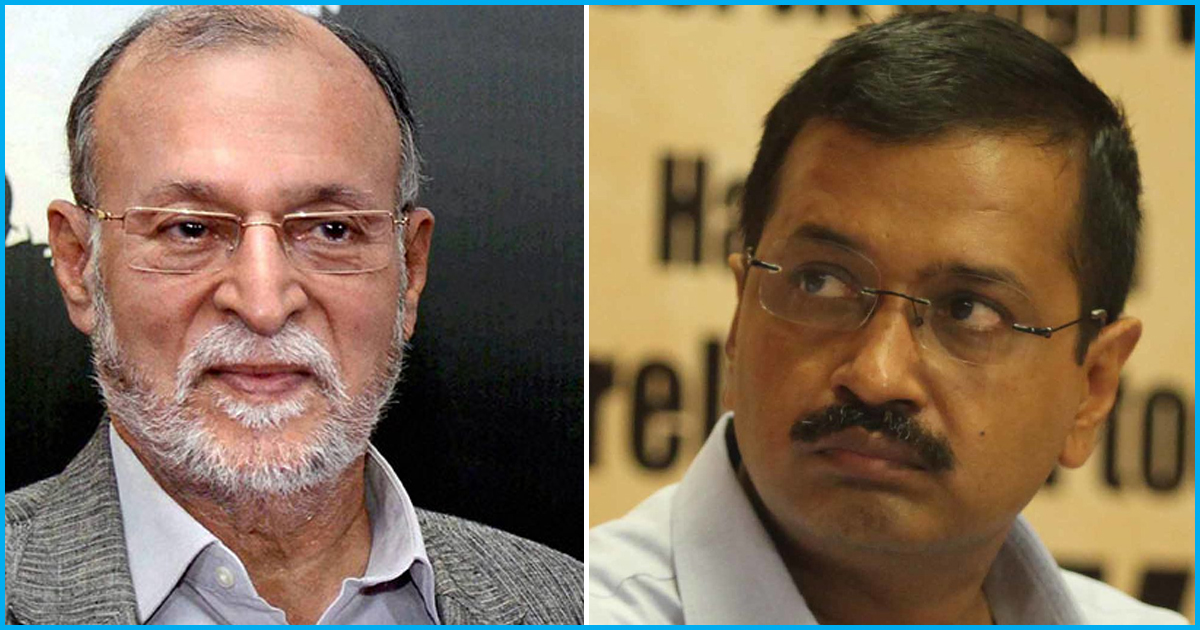
Delhi Not A 'Full State', L-G Can't Be Obstructionist: Supreme Court On Delhi CM Vs L-G Issue
4 July 2018 7:34 AM GMT
In the power tussle between the Arvind Kejriwal government and Lieutenant Governor of Delhi, Anil Baijal, the Supreme Court on July 4 said that that the L-G cannot take decisions independently and must take aid and advice from his Council of Ministers.
The Court also observed that Delhi enjoys a special status, but is not a full state. Hence, the powers and responsibility of the L-G are a little different from that of a governor. It also stated that neither the L-G nor the state should glorify themselves and should always abide by the Constitutional obligations that they have.
“There is no space for absolutism or anarchy in our Constitution,” the SC stated, reported The Indian Express. The matter was heard by a five-judge bench which was headed by CJI Dipak Misra and comprised Justice A K Sikri, Justice A M Khanwilkar, Justice D Y Chandrachud and Justice Ashok Bhushan. It had reserved its verdict on December 6, 2017.
According to ‘The Government Of National Capital Territory Of Delhi Act, 1991’, the parliament can make laws and regulations for Delhi, and the Delhi government also has the power to legislate on all issues except land, police and public order.
The Supreme Court stated:
“Delhi enjoys special status, is not a full state. The Status of L-G is not that of a Governor. L-G cannot act independently, or be obstructionist. He must take the advice of Council of Ministers. Parliament has the power to make laws for Delhi on state, concurrent list. Delhi govt can legislate on all subjects except land, police and public order. Neither state nor L-G should feel lionized but realise they are serving Constitutional obligations. There is no space for absolutism or anarchy in our Constitution”
Arvind Kejriwal tweeted that it is a big victory for democracy.
A big victory for the people of Delhi…a big victory for democracy…
— Arvind Kejriwal (@ArvindKejriwal) July 4, 2018
CJI Dipak Mishra who was reading out the order said that in a provision to Article 239AA(4), the state and the Union must cohabitate peacefully. He reiterated that the power of the L-G in Delhi is different from the other states. He also mentioned that the L-G cannot be obstructionist and have to co-operate with a Council of Ministers for the smooth functioning of the state.
Lt. Governor must act by the aid and advice of Council of Ministers, or in cases where matter is referred to President on the decision of President, he cannot act independently, Chandrachud J. #DelhiPowerTussle #SupremeCourt @ArvindKejriwal
— Bar & Bench (@barandbench) July 4, 2018
Reportedly, the NCT government was represented by eminent Senior Counsel Indira Jaising, Gopal Subramanium, P Chidambaram, Rajeev Dhavan and Shekhar Naphade, the Central government was represented by Additional Solicitor General Maninder Singh and Senior Advocate Sidharth Luthra.
What happened earlier?
The Delhi CM had accused L-G of taking decisions independently like an elected government and sitting on files. The Centre, which appoints the L-G, had contended that “for any Centrally administered territory… and especially Delhi in respect of its unique position… responsibility is on the shoulders of the Union Government”, reported The Indian Express.
 All section
All section













